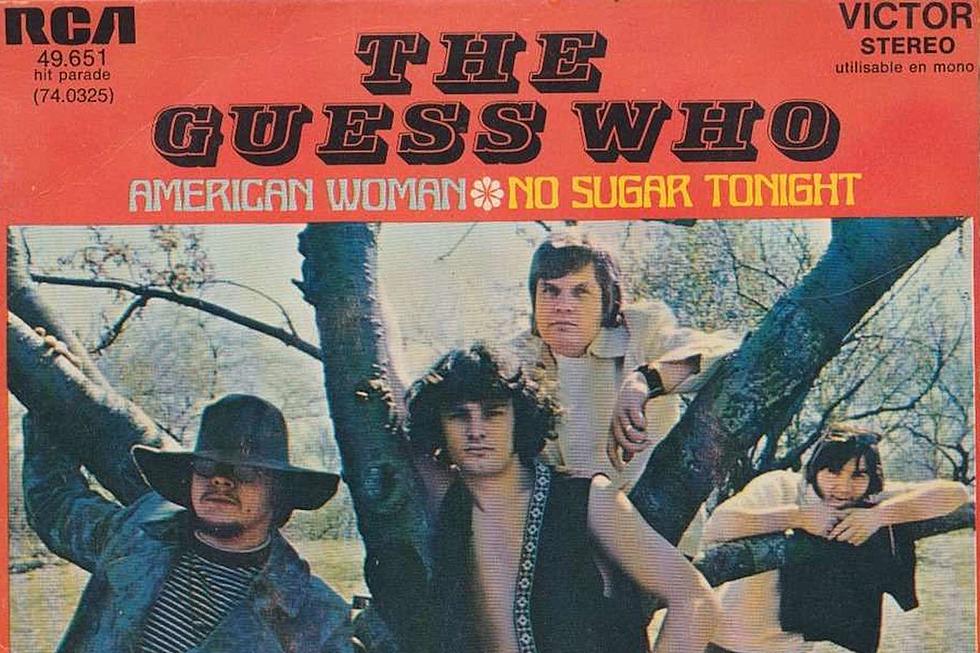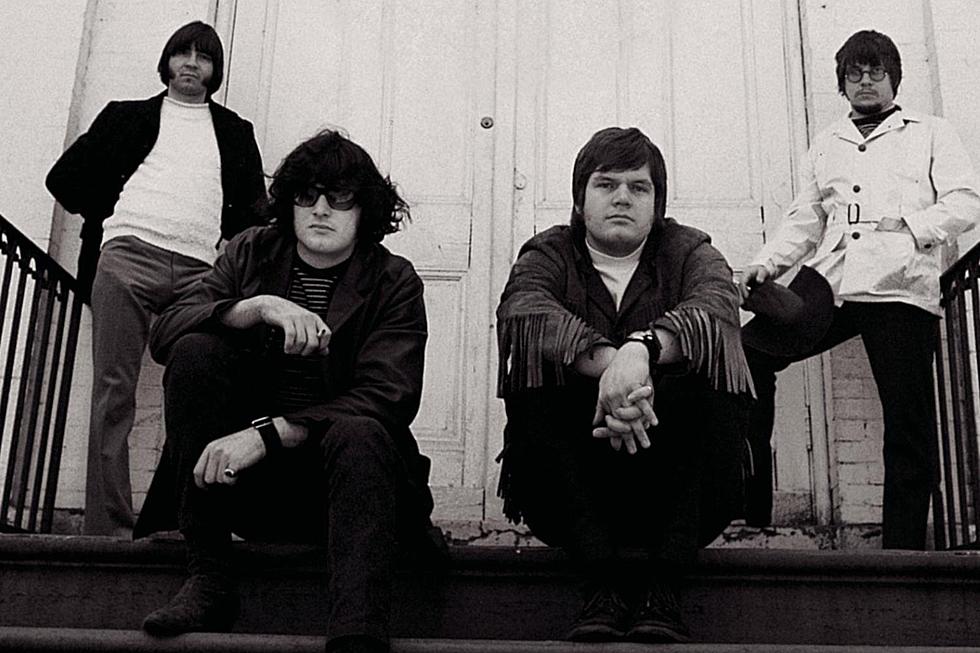
How the Guess Who Stumbled Into a No. 1 With ‘American Woman’
The Guess Who can thank a bootlegger for their first-ever chart-topping Billboard single.
"American Woman" grew out of a loose jam session while on stage, as guitarist Randy Bachman played a riff while frontman Burton Cummings – who'd been ruminating on the differences between women in the U.S. and their native Canada – sang whatever came to mind.
They loved this embryonic idea, but likely had no hope of recreating it again in the studio. Then the band noticed someone out in the crowd with a recorder.
"We confiscated the tape from him and virtually learned 'American Woman' from the jam," Cummings told the Burlington County Times in 2017. "Had the events occurred differently, 'American Woman' would have been lost forever in the air of that night long ago."
Bachman broke a string during the show, held at a curling arena in Kitchener-Waterloo, Ontario, and was tuning his guitar when the "American Woman" riff emerged. "Everybody's head snapped around," Bachman remembered in 2015. "I said, 'Sing something.' The first thing [Cummings] sang was 'American woman.'"
The Guess Who continued working on "American Woman" for the next few shows, as all four members of the group – Cummings, Bachman, bassist Jim Kale and drummer Garry Patterson – earned songwriting credit. They recorded the song a couple of weeks later and then released it as a single in March 1970.
By then, "American Woman" had become a much bigger statement – about America, about the Vietnam War, and about their experiences while out on the road.
"It was never really meant to be political," Cummings told the Free Lance-Star in 2001. "It just came out that way. I had just made an observation that the girls in the states seemed to grow up faster, wore more makeup at an earlier age and were probably looser sexually than Canadian girls."
But their visit to America had changed the Guess Who in more fundamental ways.
Listen the Guess Who Perform 'American Woman'
"No one sat down and wrote it to be like 'Eve of Destruction' or a Bob Dylan anti-war song," Bachman told the Free Lance-Star. The title "just happened to be a phonetic thing [Cummings] yelled out – none of us knew what it meant. Later, he put in stuff that meant something to us: 'The colored lights can hypnotize' was about Broadway, and we'd never seen a ghetto growing up in Winnipeg. The first we'd seen were in Georgia and Alabama. The poor part of the town we lived in was nothing like these shacks."
At the same time, the conflict overseas was an inescapable presence. "We would go into a town and there would be no young men our age," Bachman added. "They had all been drafted. It would be all girls at out concerts."
Some thought Cummings' American woman was the Statue of Liberty, others that he simply hated blondes. The band was forced to respond.
"The popular misconception was that it was a chauvinistic tune, which was anything but the case," Kale later argued. "After that one particularly grinding tour, it was just a real treat to go home and see the girls we had grown up with. Also, the war was going on, and that was terribly unpopular. We didn't have a draft system in Canada, and we were grateful for that. A lot of people called it anti-American, but it wasn't really. We weren't anti-anything."
None of it stopped "American Woman," which topped the Billboard charts on May 9, 1970 and remained there for three weeks. That made the Guess Who the first-ever Canadian band to reach No. 1. Ironically, the group was in the U.S. when they found out.
"The day we first heard about 'American Woman' was wonderful," Bachman told the Burlington County Times. "The four of us hugged and jumped and bounced on a bed in Milwaukee."
In time, the song became ubiquitous, then somewhat opaque. Maybe it was familiarity, or maybe everybody simply got lost in that monster riff. Cummings marveled as "American Woman" emerged as a sing-along anthem – whatever its original intent.
"The funny thing is that the crowds are eating it up, even though I'm singing 'American woman, stay away from me. I don't need your war machine,'" he told the Free Lance-Star. "I've been very surprised. People hear it as more of a celebration."
"American Woman" also served as the title track for the Guess Who's only Top 10 entry on the Billboard album charts – and the death knell for this lineup. The song was still No. 1 when Bachman played his last gig with the group on May 16, 1970 in New York City.





